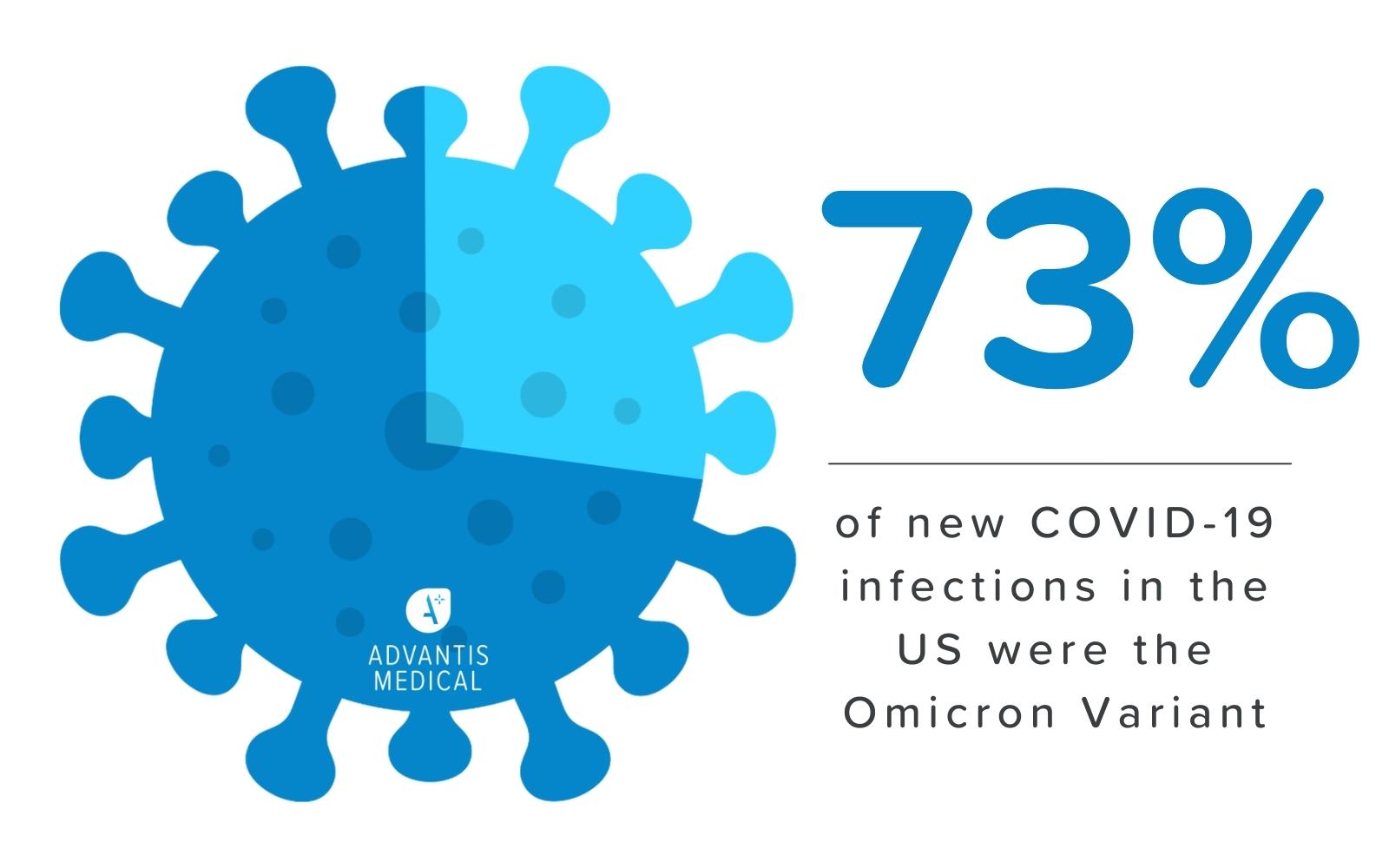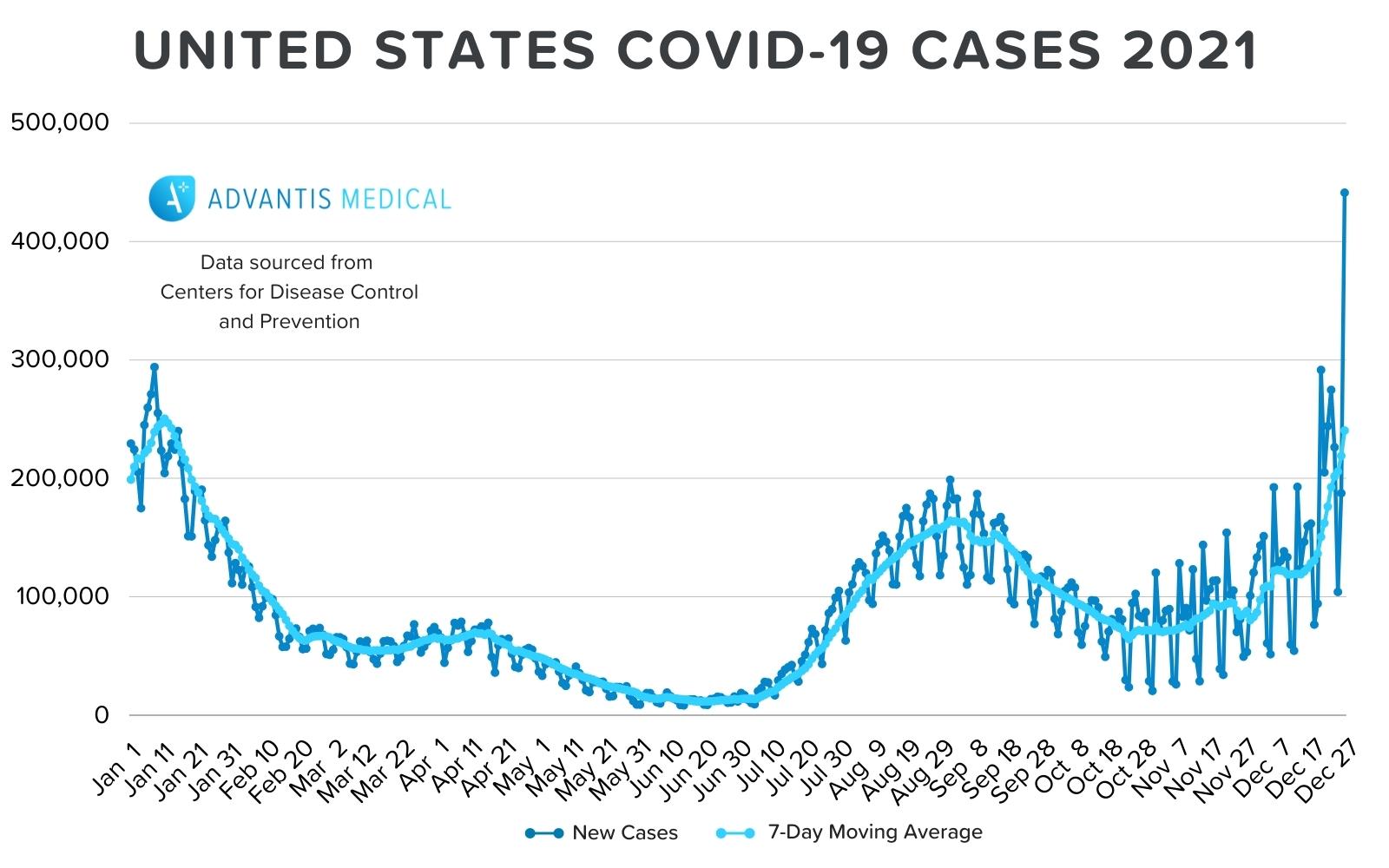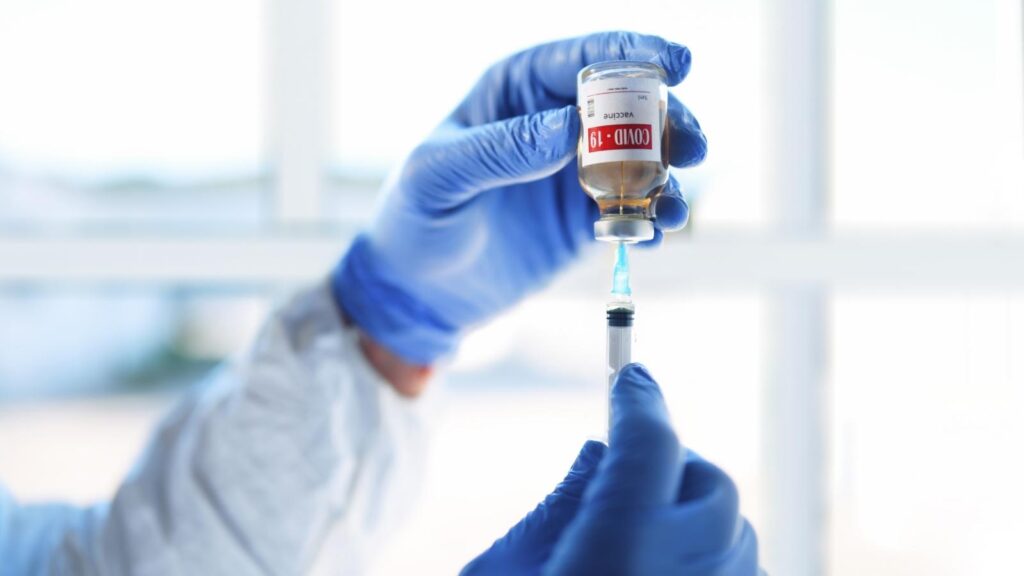The Omicron variant of COVID-19 was first identified in South Africa and Botswana in November 2021. The following weeks saw it surge worldwide faster than any other form of the coronavirus. The CDC has been working with public health and industry partners to learn more about this variant while monitoring its course. Currently, it is still not clear how it spreads, the severity of the illness, or how well the vaccines and medications work to combat it.
Unfortunately, the pandemic has caused nurses to develop PTSD and leave their careers. This has led to a problem with hospitals being short-staffed. These hospitals need new professionals due to the hospitalization rate of COVID cases.
Advantis Medical can help with healthcare staffing and finding jobs. Allied health and travel nurses can find thousands of job opportunities on the AdvantisConnect job portal. Healthcare facilities can rest assured knowing we only hire qualified and certified candidates.
What is the Omicron variant?
This variant was first discovered due to the distinctive combination of over 50 mutations carried by the Alpha and Beta variants. Previous research indicated that these mutations enabled the virus to spread quickly, while other mutations helped the virus evade the antibodies produced by the vaccines.
Based on these mutations, along with the rise in cases of the Omicron COVID variant in South Africa, on November 26, 2021, this variant was labeled as a “variant of concern.” Since that time, this variant has been seen in over 90 countries.
A California resident returning home from South Africa was infected with this variant at the beginning of December 2021. By the middle of December 2021, the CDC estimated that approximately 73% of the new infections in the US were the Omicron variant.

Does the Omicron variant spread quicker than others?
Yes, at this time, researchers believe that this variant is 2 to 3 times more likely to spread than the Delta variant. The earliest proof for the rapid spread came from South Africa, where this variant grew dominant in each province. This means that researchers in other countries have been able to catch it earlier in the upswing. However, the cases of Omicron are doubling every 2 to 4 days, which is much less time than the Delta variant required to double.
For a better look at the spread of Omicron, researchers in Britain observed what happened in the households of 121 individuals with this variant. This research indicated that this variant was 3.2 times more likely to result in the entire household being infected than Delta.
Currently, it’s not clear why this variant spreads so rapidly. One theory is that it can invade cells more readily, while others cite an ability to multiply once it is inside the cells.
Can immunity from previous infections stop the Omicron variant?
While it’s true that previous infections may protect against severe infection, immunity doesn’t do much to deter infection with Omicron. The first clue that immunity cannot stop Omicron came from South Africa. Researchers have estimated that at least 70% of individuals with Omicron had some form of COVID-19 during the pandemic.
In England, researchers reported similar numbers- most people diagnosed with the Omicron variant had already been infected previously. Research indicates that the risk of re-infection with the Omicron variant is about 5 times more than other variants.
To understand this risk of re-infection, researchers have studied antibodies from individuals who have recovered from COVID-19. When the antibodies are mixed with other variants, they keep the virus out of the human cells.
On the other hand, when these antibodies are mixed with Omicron, the virus can still get into the cells in most cases. These findings indicate that the mutations in Omicron change the shape of surface proteins where the antibodies attach to the virus.
The ability to get past these immune defenses is likely at least part of the reason why the cases are doubling so quickly. Antibodies protect against other variants- but Omicron can get past these defenses and into the cells.
Do vaccines protect against Omicron?
Currently, there is not an Omicron vaccine or Omicron booster, but several studies are indicating that full vaccination plus the boosters offer protection against Omicron.
However, research does indicate that while the two initial doses plus the boosters provide the most protection, the two initial doses alone can offer some protection.
Researchers tested blood from fully vaccinated individuals, combining their antibodies with Omicron in a petri dish of human cells. Each vaccination tested does not neutralize the Omicron as well as it does other variants. However, the blood from those who had boosters showed something entirely different. The boosted antibodies were able to block the Omicron virus from entering cells.
Real-world studies support these results. In South Africa, researchers discovered that 2 doses of the Pfizer vaccine had an effectiveness rate of 33%. On the other hand, the antibodies’ effectiveness with other variants was 80%.
Do vaccines decrease the severity of COVID-19 symptoms?
Preliminary studies indicate that vaccines do decrease the severity of COVID-19 symptoms. In South Africa, those who had received 2 doses of the Pfizer vaccine were 70% effective at preventing hospitalization.
This supports what scientists know about the way vaccines work- not only do they produce antibodies, but they also cause T-cells to grow. These T-cells help fight infection because they learn to recognize the virus cells and destroy them, slowing down the infection.
This has led researchers to examine T-cells produced by the COVID-19 vaccines to see how they work against Omicron. The findings are promising; the T-cells do recognize the Omicron variant.
Preliminary research indicates that, since Omicron can evade antibodies, it is good at establishing itself in the noses of the host. However, since it may not get past the T-cells, it’s not likely to get into the airway to cause serious issues.
How bad will the Omicron COVID variant spread be?
Several preliminary studies in England, South Africa, and Scotland indicate a lower hospitalization rate than some of the other variants.
Initial research indicates that the Omicron variant is slightly milder than the Delta variant for unvaccinated and has not been infected by other variants. Two doses of vaccinations protect against hospitalization for this variant- though this protection is not as strong as the Delta variant, and boosters are likely to increase this effectiveness.

Both in the UK and South Africa, most of those infected by Omicron had been infected previously by another variant. This supports findings that re-infections with this variant are more common than with others. However, the immunity provided by these previous infections decreases the chances of hospitalization.
Is the Omicron COVID variant treatable?
Yes, the Omicron COVID variant is treatable. However, at this time, the government has paused the distribution of monoclonal antibodies from Eli Lilly and Regeneron because Omicron is resistant to this medication. However, GSK has reported that their formulation is likely to be effective, so the government is trying to secure more doses.
In late December 2021, the FDA gave authorization to two antiviral pills for COVID because preliminary studies indicate that these are effective against the Omicron COVID variant. It is believed this is due to the mutations that make Omicron resistant to the monoclonal antibodies that don’t affect the viral proteins targeted by these medications.
Antiviral pills and monoclonal antibodies are made to keep individuals newly diagnosed with COVID from being hospitalized. Those who go to the hospital due to infection from the Omicron variant have various treatment options. For example, a steroid known as dexamethasone has proven to keep the infection from causing lung inflammation.
The Future of the Omicron Variant
Researchers are working to determine what the Omicron COVID variant will do in the next few months. This research is based on the current assumptions about the variant and is likely to be altered as more information is learned. Researchers already know that it’s highly transmissible and can get around immune defenses.
Even if this variant is determined to be milder than others, it could still cause hospitals to reach their limits. While a smaller fraction of cases require hospitalization, more patients will be treated if more people are infected than with previous variants. In the United States, these new cases will be added to the already high hospitalization rates of the Delta variant.
At this time, the best information indicates that the threat posed by the Omicron variant is significant and is on the horizon. Therefore, we must all prepare ourselves to respond. Of course, these projections are not set in stone. Variables can change if more people implement safety practices, including getting vaccinated, practicing social distancing, and wearing masks in public. Additionally, the boosters will strengthen defenses.
How to Find Crises Nursing Jobs & Healthcare Staffing
Due to many factors, including burnout and mental health issues, there’s a shortage of nurses. As hospitalizations increase, they are going to need nurses more than ever. Advantis Medical would love to help you connect with the job of your dreams. You can find thousands of job opportunities in the AdvantisConnect job portal.
Additionally, if you’re in need of travel nurses or allied health technicians quickly, contact us.









